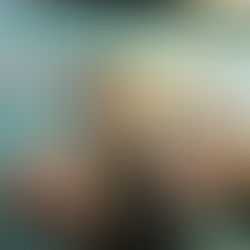SHORT FOCUS 2019: Teddy Mate [Rommel Villa, USA, 2018]
Rommel Villa’s student film Teddy Mate, offers up a fantastical world where everyone’s individual childhood teddy will one day transform into his or her perfect life partner. The short explores themes of identity, sexuality and the undue pressures of societal expectation, even during the most personal of lived experiences.
Teddy Mate has an incredibly high production value throughout, with some welcome additions of VFX to bring Villa’s fantasy world to life. The budget is supplemented by some really strong camera work, with an early tracking shot from a young girl’s point of view, as she selects her own ‘Teddy Mate’, a noteworthy sequence.
One of the most fascinating features of Villa’s world-building, is that the Teddy Mate may manifest itself into its human form, at any time. Marie’s teddy, Jordan, transforms into another girl, totally out of the blue one day in her bedroom, much to her joy and her mother’s distress. In Villa’s world, the choice of when to come out, and the empowerment that this process can provide for a young person, is completely taken away, giving a wholly original aspect to Marie’s characterization and development into sexual maturity. Similarly, the mother’s reaction to “look for a troubleshooting section” in the teddy manual to solve their daughter’s supposed ‘identity crisis’, is a really nice and imaginative touch, reminding us of the unfortunate view held by many, that anything that differs from the sexual norm in some way needs straightening out.

One criticism of the film is that often its message and delivery is laid on a bit too thick, stripping away the opportunity for nuance, taking away the audience’s opportunity for a moment of silent reflection. Case and point: the father’s line “have you ever seen her look so happy”, after the mother has finally come to terms with her daughter’s partner. Films like this deliver their message best when they leave the audience with the opportunity for some serious introspection, and therefore treat the film as a microcosm for the world around them, and take the opportunity to reflect. Perhaps with a slightly more minimal approach, Teddy Mate would have been capable of drawing an even stronger reaction from its viewers.
Teddy Mate delivers a ‘disneyfied’ version of what, regrettably, is still too often viewed as an ‘alternative message’, forced for too long to sit on the fringes of film. Marie’s favourite colour being blue, gives a rather lovely allusion (planned or no) to Blue is the Warmest Colour [Abdellatif Kechiche, France, 2013], another pioneering film centering on a lesbian romance, and is but another reminder of the film’s ability to strictly adhere to its important message.
To have Marie and Jordan share a kiss, however, felt like a real opportunity missed. Here Teddy Mate holds itself back, when a bit more bravery could have been well rewarded. The decision to simply have their animated figures kiss during the credits felt too much like a director packing their punches, odd for a film with such a clear and important social message.
‘Teddy Mate’ was part of the Official Selection for Short Focus Film Festival 2019.

.png)




![SHORT FOCUS 2022: So What Did We Learn Today, Georgina? [Franco Volpi, UK, 2022]](https://static.wixstatic.com/media/9b7dde_f048f3b1e32c48918d83c1285916aa3c~mv2.png/v1/fill/w_220,h_123,fp_0.50_0.50,q_95,enc_auto/9b7dde_f048f3b1e32c48918d83c1285916aa3c~mv2.webp)

![Two Knights [Piotr Szkopiak, UK, 2022]](https://static.wixstatic.com/media/9b7dde_4b197f184db54afc95f775fe48320bd7~mv2.jpeg/v1/fill/w_220,h_123,fp_0.50_0.50,q_90,enc_auto/9b7dde_4b197f184db54afc95f775fe48320bd7~mv2.webp)
![SHORT FOCUS 2022: Throw Your Heart Over First [Mark McAuley, Ireland, 2021]](https://static.wixstatic.com/media/9b7dde_f17e64582f494d729a117bddc19545a9~mv2.png/v1/fill/w_220,h_123,fp_0.50_0.50,q_95,enc_auto/9b7dde_f17e64582f494d729a117bddc19545a9~mv2.webp)

![Borrowed Time [Ginevra Gentili, UK, 2022]](https://static.wixstatic.com/media/9b7dde_ed0c27adf0984653a11c5104f74a1b58~mv2.jpeg/v1/fill/w_220,h_123,fp_0.50_0.50,q_90,enc_auto/9b7dde_ed0c27adf0984653a11c5104f74a1b58~mv2.webp)

![SHORT FOCUS 2021: Cornflakes Are Rubbish [Charlotte Nind/Jacob Bacon, UK, 2021]](https://static.wixstatic.com/media/9b7dde_800e4f3cde6147399b1eee00f4337095~mv2.jpeg/v1/fill/w_220,h_123,fp_0.50_0.50,q_90,enc_auto/9b7dde_800e4f3cde6147399b1eee00f4337095~mv2.webp)

![SHORT FOCUS 2021: Original Sin [Paolo Sinigaglia, Italy, 2020]](https://static.wixstatic.com/media/9b7dde_ca789cc5313b4f94bf20f025dc4796ee~mv2.jpg/v1/fill/w_220,h_123,fp_0.50_0.50,q_90,enc_auto/9b7dde_ca789cc5313b4f94bf20f025dc4796ee~mv2.webp)

![SHORT FOCUS 2021: Shallow [Paul Ashton, UK, 2021]](https://static.wixstatic.com/media/9b7dde_951699be78e74888bc681fcd9d6c24cc~mv2.jpg/v1/fill/w_220,h_123,fp_0.50_0.50,q_90,enc_auto/9b7dde_951699be78e74888bc681fcd9d6c24cc~mv2.webp)

![SHORT FOCUS 2021: Bohemia [Samuel Kaperski, France, 2019]](https://static.wixstatic.com/media/9b7dde_d748c63a3c814cb99859c13d18c00d7d~mv2.jpg/v1/fill/w_220,h_123,fp_0.50_0.50,q_90,enc_auto/9b7dde_d748c63a3c814cb99859c13d18c00d7d~mv2.webp)


![SHORT FOCUS 2022: So What Did We Learn Today, Georgina? [Franco Volpi, UK, 2022]](https://static.wixstatic.com/media/9b7dde_f048f3b1e32c48918d83c1285916aa3c~mv2.png/v1/fill/w_51,h_39,fp_0.50_0.50,q_95,enc_auto/9b7dde_f048f3b1e32c48918d83c1285916aa3c~mv2.webp)

![In the Eyes of a Child [Marco Ferrara, Italy, 2023]](https://static.wixstatic.com/media/9b7dde_01e294bd769e4a8aa341551ca7bc7871~mv2.jpeg/v1/fill/w_51,h_39,fp_0.50_0.50,q_90,enc_auto/9b7dde_01e294bd769e4a8aa341551ca7bc7871~mv2.webp)
![Two Knights [Piotr Szkopiak, UK, 2022]](https://static.wixstatic.com/media/9b7dde_4b197f184db54afc95f775fe48320bd7~mv2.jpeg/v1/fill/w_51,h_39,fp_0.50_0.50,q_90,enc_auto/9b7dde_4b197f184db54afc95f775fe48320bd7~mv2.webp)
![SHORT FOCUS 2022: Throw Your Heart Over First [Mark McAuley, Ireland, 2021]](https://static.wixstatic.com/media/9b7dde_f17e64582f494d729a117bddc19545a9~mv2.png/v1/fill/w_51,h_39,fp_0.50_0.50,q_95,enc_auto/9b7dde_f17e64582f494d729a117bddc19545a9~mv2.webp)

![The Story of a Trout [Gareth Leah, USA, 2022]](https://static.wixstatic.com/media/9b7dde_044565b04f7b4b6da729f134c619e377~mv2.jpeg/v1/fill/w_51,h_39,fp_0.50_0.50,q_90,enc_auto/9b7dde_044565b04f7b4b6da729f134c619e377~mv2.webp)

![My Name is Moe [Kabir McNeely, USA, 2022]](https://static.wixstatic.com/media/9b7dde_680ffd6c85f642a6844b8785364c4288~mv2.jpg/v1/fill/w_51,h_39,fp_0.50_0.50,q_90,enc_auto/9b7dde_680ffd6c85f642a6844b8785364c4288~mv2.webp)
![Borrowed Time [Ginevra Gentili, UK, 2022]](https://static.wixstatic.com/media/9b7dde_ed0c27adf0984653a11c5104f74a1b58~mv2.jpeg/v1/fill/w_51,h_39,fp_0.50_0.50,q_90,enc_auto/9b7dde_ed0c27adf0984653a11c5104f74a1b58~mv2.webp)
![SHORT FOCUS 2021: Cornflakes Are Rubbish [Charlotte Nind/Jacob Bacon, UK, 2021]](https://static.wixstatic.com/media/9b7dde_800e4f3cde6147399b1eee00f4337095~mv2.jpeg/v1/fill/w_51,h_39,fp_0.50_0.50,q_90,enc_auto/9b7dde_800e4f3cde6147399b1eee00f4337095~mv2.webp)

![The Skin She Sheds [Cass Virdee, UK, 2022]](https://static.wixstatic.com/media/9b7dde_bddd09258c164b9a90431ffd228c378a~mv2.jpeg/v1/fill/w_51,h_39,fp_0.50_0.50,q_90,enc_auto/9b7dde_bddd09258c164b9a90431ffd228c378a~mv2.webp)
![SHORT FOCUS 2021: Original Sin [Paolo Sinigaglia, Italy, 2020]](https://static.wixstatic.com/media/9b7dde_ca789cc5313b4f94bf20f025dc4796ee~mv2.jpg/v1/fill/w_51,h_39,fp_0.50_0.50,q_90,enc_auto/9b7dde_ca789cc5313b4f94bf20f025dc4796ee~mv2.webp)
![SHORT FOCUS 2021: Shallow [Paul Ashton, UK, 2021]](https://static.wixstatic.com/media/9b7dde_951699be78e74888bc681fcd9d6c24cc~mv2.jpg/v1/fill/w_51,h_39,fp_0.50_0.50,q_90,enc_auto/9b7dde_951699be78e74888bc681fcd9d6c24cc~mv2.webp)
![SHORT FOCUS 2021: Bohemia [Samuel Kaperski, France, 2019]](https://static.wixstatic.com/media/9b7dde_d748c63a3c814cb99859c13d18c00d7d~mv2.jpg/v1/fill/w_51,h_39,fp_0.50_0.50,q_90,enc_auto/9b7dde_d748c63a3c814cb99859c13d18c00d7d~mv2.webp)

![SHORT FOCUS 2021: Yuluu [Fatima Kried, UK, 2021]](https://static.wixstatic.com/media/9b7dde_eb393025c61143cf98b6e551df4adf77~mv2.jpg/v1/fill/w_51,h_39,fp_0.50_0.50,q_90,enc_auto/9b7dde_eb393025c61143cf98b6e551df4adf77~mv2.webp)